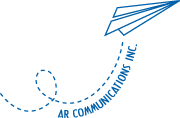In an earlier post, we talked about the rich resources available in the marketing communications industry. You don’t have to figure out everything yourself – you can make use of the experiences of others, and pass along yours as well.
Here are a few things to keep in mind as you’re networking:
DO
Stay professional, positive, and generous. The more you give in your networking relationships, the more you will receive.
Consider a more formal networking arrangement such as a think tank or mastermind group. There will likely be an agreement to cover things like scheduling, eligibility, and structure.
Shop around for volunteer opportunities within your group or association. Sitting in on a committee or helping to plan an event is one way to develop relationships with the people who make things happen.
Attend the educational and conference events that genuinely interest you. This way, you’ll be at your most energetic and engaged, and you’ll meet people you can relate to.
Make the best first impression you can in your online profile on LinkedIn, Twitter, or Facebook. Write and proofread your profile carefully and include an attractive, professional, and friendly photo.
DON’T
Expect referrals, introductions, or assistance right away. People refer to, help, and do business with those they know, like, and trust.
Start your own group – online or offline – before you consider the time, energy, and commitment involved. If the group fades away or falls apart, your credibility could take a hit.
Gossip or criticize about your colleagues. It only reflects poorly on you.
Talk to the same people at every meeting. Venture out of your comfort zone and approach people who run in different circles or who have more experience than you have.
Forget to bring business cards or collect the business cards of the people you spoke to. Follow up with any information you promised, or to book another time to get together.
Your network may just be your most powerful resource. Whatever your question, there is someone with an answer. Whatever your experience, there is someone who could benefit from hearing about it. Whatever you need, someone in your network either can help, or can introduce you to someone who can help. It’s worth the time to build a strong network.
